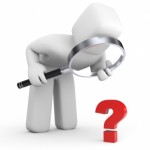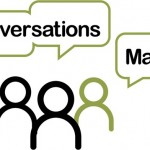
by cjxpadmin | Sep 1, 2012 | Job Readiness, September 2012 Magazine
By Yolanda L Salazar
I hope you had time to take the small test we provided in Job Club Discussion #7, Punctuation on August 29, 2012. The comments were varied. Some felt it was rather easy and they felt good that they had done pretty well. Others indicated that it was more difficult than the previous week with the Grammar questions. Hmm…
Regardless, I have provided for you the questions as they were asked in the discussion and then a corrected version beneath it. After that is a brief description of each punctuation mark, its uses and examples. Please continue to test yourself from time to time. You will be amazed how you can still remember some of the rules we learned in grade school.
Check out your answers below and see how you did. Did you do well? I hope so.
PERIOD.
1. Chloe tried to buy the $9.99 CD at the store on Memphis St but someone had only given her 9.45 INCORRECT
Corrected: Chloe tried to buy the $9.99 CD at the store on Memphis St., but someone had only given her $9.45.
2. Nine-tenths, .9, is written out as .09. INCORRECT
Corrected: Nine-tenths is written out as .9.
The period is used in varied ways. A period is used to indicate the ending of a sentence.
The secretary is a vital part of the office.
It ‘s also used in abbreviations to show a short form of a word.
Street = St., Collins St.
It’s used in dollar amounts to separate dollars from cents.
Ten Dollars and Fifty-five cents – $10.55
And it’s used in decimals to designate portions of whole numbers. Nine-tenths = .9
COMMA.
3. Alec, brother to Baby Joshua, has the best toys in the playroom. CORRECT
4. Margie began her new employment on Wednesday October 1 2012.
Corrected: Margie began her new employment on Wednesday, October 1, 2012.
The comma has many, many uses. Here are just a few. It is used to separate independent sentences joined by a conjunction.
The phone was ringing, but Carolyn wasn’t in her office.
Used after a dependent clause before an independent sentence.
Before Beth left the office, she called for a cab.
Another use is to describe a noun or the subject of your sentence.
Sharon, the secretary next door, offered to cover the office in Brenda’s absence.
A comma also separates names, phrases or clauses.
Dora, Phillip, Deborah, and the Legal Division celebrated Marvin’s promotion.
You also use a comma to separate two adjectives in describing the same noun that might be misunderstood.
Henry has a loyal, dedicated secretary.
Commas can set off items in dates, addresses and cities.
Don began his employment on June 1,1987. He came from Chicago, Illinois.
It is also used to separate names from titles as well as after salutations in a letter to a friend.
John Brandon, Executive Director or… Dear Louise,
A comma is required after a complimentary closing in a letter.
Sincerely yours,
To set off a direct quotation, a comma is needed as well as indicating the omission of words.
Betty said, “We open at nine o’clock, not ten o’clock.”
COLON :
5. The classroom consisted of four things, desks, chairs, computers and books. INCORRECT
Corrected: The classroom consisted of four things: desks, chairs, computers and books.
6. We had to cancel our trip: Rachel and her sister were sick. CORRECT
The colon is used to offset a series of items.
Four things are needed to make an office: a desk, a file cabinet, a telephone and a typewriter.
SEMICOLON ;
7. Melvin was very upset; the question for Job Club was not ready. CORRECT
8. Andrea answered the question correctly, therefore, she received the prize. INCORRECT
Corrected: Andrea answered the question correctly, therefore, she received the prize.
A semicolon is used to separate independent clauses joined by conjunctive adverbs.
Charles in Personnel did the best work; therefore, he got the raise.
It is also used to separate independent sentences that are closely related and at the same time sentences or phrases that make contrasting statements.
Bridget was ready; she wanted to begin her interview. or…
Love is forgiving; hate, vengeful.
APOSTROPHE 
9. We wanted to use Sheenas’ computer, but its security code was missing. INCORRECT
Corrected: We wanted to use Sheena’s computer, but its security code was missing.
10. Back in the 50s, we used to see a lot of Rock and Roll. INCORRECT
Corrected: Back in the 50’s, we used to see a lot of Rock and Roll.
The apostrophe shows possession of nouns and some pronouns.
Everyone in the office used Mae’s typewriter, but it was not anyone’s fault that it finally broke.
It is also used to indicate the omission of figures in such things as dates or the omission of letters in words that form contractions.
Teresa was in the Class of ’68, but she didn’t wish to come to the Reunion.
And, an apostrophe can form plurals of letters, symbols and figures.
Anita received all A’s in primary school back in the ’50’s and she would always mind her p’s and q’s.
DASH – —
11. The office crew decided to send 1-2 displays for the conference. CORRECT
12. James and Louise the two top sales persons received awards. INCORRECT
Corrected: James and Louise — the two top sales persons — received awards.
There are three types of dashes which are more commonly used. The en dash (-) is used between numbers, dates and places to designate extent or duration.
en –
The section on Filing is between Pages 45-53. or…
The office hours are between 9-5.
The em dash (—) has several more uses than the en dash. One of these is to show a break or change in thought in a sentence.
em —
The supervisor picked up — and no one bothered to stop him — the broken drawer of files.
Another use of the em dash is before and after material that is used to clarify or show emphasis.
The male and female employees of the month — Ray and Agnes — were presented with awards.
One other use of this type of dash is before a statement that summarizes the content of the sentence.
Name, height, weight and social security number — these items are required on your 1.D. card.
The last use of the em dash that I am going to tell you about is when you use it before the name of an author at the end of a quotation.
To be or not to be — Shakespeare
The last type of dash is two-em (- -) which is used to indicate the omission of a word or numbers or letters in a word.
2 em – –
Dear Mrs. —
QUESTION MARK
13. May we please take your jacket. INCORRECT
Corrected: May we please take your jacket?
14. Your jacket was left where? CORRECT
The question mark ends a sentence posing an inquiry.
May we deliver your supplies before nine o’clock?
A second form of using the question mark is when uncertainty or doubt is expressed and you show it in parenthesis.
Mr. Quintin’s secretary said he would be back in his office around three (?) o’clock.
EXCLAMATION POINT !
15. Hurry, the sale is on. INCORRECT
Corrected: Hurry! The sale is on.
16. Stop! Your purse is on top of your car. CORRECT
The exclamation point is used to indicate surprise or stress strong emotion.
“Hurry!” Penny said, “The fire alarm has been activated!”
PARENTHESIS
17. The child will (one day) learn his own schedule. CORRECT
18. The report is due within ten, 10, days.
Corrected: The report is due within ten (10) days.
Parenthesis are used to set off descriptive phrases which are not required in a sentence.
The staff meeting broke up about four o’clock (a little longer than they had hoped it would last).
Parenthesis can also be used to set off series of numbers or letters used for listing purposes.
The staff meeting consisted of two individuals from each of the following programs: (a) Personnel (b) Legal, (c) Business Management, and (d) Administration. or…
The shelves available through the office supply store are: (1) two-tiered and (2) horizontal/vertical.
Quotation Marks 
19. “Sarah, asked Stacy, do you really want to use the software?”
Corrected: “Sarah,” asked Stacy, “do you really want to use the software?”
20. Yolanda “Yoli” went to the party with the group. CORRECT
The most important use of quotation marks is to enclose a direct quote.
“Jennifer,” asked Mr. Hall, “what time did you say Colonel Rector would be here for his appointment?”
Quotation marks are also used to enclose such things as chapters in a book, lectures, titles, movies, programs, and songs.
In reading the article “My Boss,” Keisha thought about the movie “9 to 5.”
One last use of quotation marks is to enclose slang expressions, nicknames or just ordinary words.
He was a “bum.” or…
Elizabeth “Liz” Thorne was invited to the class party.
That’s my article on Punctuation. Hope it was helpful. In closing, you are being given the Punctuation Tree, for future use, if you please.
Just click on the chart. I couldn’t get the tree to work; however, the chart works just fine.
Upon clicking a punctuation mark on the chart, you will be taken to a full page of rules and instructions on how to use that particular mark. And the best thing is that somewhere beneath all of this, is a section where you can take tests, just for fun!! Be careful! These are not easy. They are college level. Good Luck! △

by cjxpadmin | Aug 27, 2012 | September 2012 Magazine, This Issue's FEATURE
by Sheena Williams
You Have A Question. You have a burning desire to get information. Happenstance has caused you to require the answer and
 by gosh, you are going to get it! Swell, you turn to the library and then you turn to the internet, and your search has yielded nothing. Not a single thing. You are no closer to reaching your goal for researching than you were when you first started needing this information. Well, don’t worry! We are going to outline a few things that might help you on your way to gaining the knowledge that you need!
by gosh, you are going to get it! Swell, you turn to the library and then you turn to the internet, and your search has yielded nothing. Not a single thing. You are no closer to reaching your goal for researching than you were when you first started needing this information. Well, don’t worry! We are going to outline a few things that might help you on your way to gaining the knowledge that you need!
Keywords. Let’s say that your question is something like “What is paper made of?” Well, of course  you’re going to turn up literally thousands of answers by just googling. But what if you wanted to find out about how a certain type of paper was made? This particular paper is made from the parchment of some exotic tree on the banks of the Nile. Farfetched when you could just google the paper, but when you don’t have anything else to go on than a location and the type of item, it makes for hard research. This is where keywords come in. You can go to any library or web browser and start searching for the words: paper, Nile, parchment, tree. The keywords not only narrow your search, but it will give the browser or book log — something to grab onto when searching. By narrowing the results down or separating them into parts, you come up with a whole that will lead you to the answer.
you’re going to turn up literally thousands of answers by just googling. But what if you wanted to find out about how a certain type of paper was made? This particular paper is made from the parchment of some exotic tree on the banks of the Nile. Farfetched when you could just google the paper, but when you don’t have anything else to go on than a location and the type of item, it makes for hard research. This is where keywords come in. You can go to any library or web browser and start searching for the words: paper, Nile, parchment, tree. The keywords not only narrow your search, but it will give the browser or book log — something to grab onto when searching. By narrowing the results down or separating them into parts, you come up with a whole that will lead you to the answer.
Phrases. Much like keywords, phrases will help you search for exact items dealing with the subject you are trying to get information on. You are searching for a book and you don’t know the title, the author or where the book can be found. You are  looking for a song and you are unable to remember the song lyrics or you don’t know the name of the song. By searching for the whole phrase, you are giving instructions for the computer or library database to look for a string of words that are in sequence. It narrows the amount of searching that has to be done because of the very specific information you entered in the search engine.
looking for a song and you are unable to remember the song lyrics or you don’t know the name of the song. By searching for the whole phrase, you are giving instructions for the computer or library database to look for a string of words that are in sequence. It narrows the amount of searching that has to be done because of the very specific information you entered in the search engine.
Spelling. Spelling what you are looking for properly cannot be impressed upon enough. By spelling the name of what you are speaking of properly, you can find whatever you are looking for much faster.  Unfortunately, in our world of creative ways of doing things, what you may think is the proper spelling of a word may not be the proper spelling of what you are looking for. If you are looking for a packaging and all you have is the word lid, the company may, in fact, have lids. They may, in fact, even be called Lids. But what you don’t know is that Lids is spelled Lydz. What you didn’t know is that the name of the item is a play on the spelling, and also the name of the owner, Lydia. The world of printing is not subject to the same laws as the rest of the literary world.
Unfortunately, in our world of creative ways of doing things, what you may think is the proper spelling of a word may not be the proper spelling of what you are looking for. If you are looking for a packaging and all you have is the word lid, the company may, in fact, have lids. They may, in fact, even be called Lids. But what you don’t know is that Lids is spelled Lydz. What you didn’t know is that the name of the item is a play on the spelling, and also the name of the owner, Lydia. The world of printing is not subject to the same laws as the rest of the literary world.
Ask Friends. When you hit a road block with your search, bounce some ideas off your friends! They may not only already know exactly where to look and give you suggestions, they may also know of another way of looking for something. They may have a phrase or some keywords you haven’t even thought or imagined. They may know more of that song you were searching earlier. They may know the address of that packing company. They may know that the business you are looking for is spelled a little differently. Your friends and family are a fount of information that you may not have tapped into who can get you that answer that much faster!
Frustration. Don’t, under any circumstances, get frustrated with your search. There is a lot of information out there which means there’s a lot of information you’ll have to weed through. There will be times when you will find everything around the subject, but not the exact subject you are seeking. There will be times when you see the exact title of what you want, but due to mislabeling, you turn up a site about the rain forest. That’s all well and dandy, but you were looking for information about card board boxes. Know that when you start the search that you may not come up with much the first time around. In fact, you may have the opposite and have too much information thrown at you with not only different pages, but different opinions. Just take a deep breath and wade through. You will find your targeted item or song or company.
Remember, with a little elbow grease and a few of the suggestions listed above, you will be able to find anything you desire on the internet or anywhere! △

by cjxpadmin | Aug 27, 2012 | Job Search, September 2012 Magazine
by Marrisa Maldonado
The role of a manager and the role of a leader are often thought to go hand in hand. Many individuals think that in order to be a manager, you have to be a leader and vice versa, but the fact of the matter is that both positions have differences in their functionalities and in their duties. All managers have formal authority and status. Three main roles that managers assume are informal roles, interpersonal roles, and decisional roles.
The informal role of a manager concerns how they receive and relay information and how they monitor internal and external information.
Interpersonal aspects of their work include establishment and maintenance of interpersonal relations. Another aspect  of their interpersonal duties is to be a figurehead and a liaison for subordinates in a symbolic manner.
of their interpersonal duties is to be a figurehead and a liaison for subordinates in a symbolic manner.
A manager’s decisional duty includes entrepreneurship. They handle problems by turning them into opportunities, and they have to be negotiators and resource allocators.
The five major functions that managers perform are planning, organizing, command, coordinating, and control.
 When it comes to planning, a manager has to determine an organization’s goals and think of logistics and resources.
When it comes to planning, a manager has to determine an organization’s goals and think of logistics and resources.
Organizing/coordinating means that managers have to adapt and know how to integrate activities and tasks.
Command is based on a leadership function which means that it is the manager’s responsibility to direct and coordinate people and to motivate their employees.
Last but not least is the controlling function which entails monitoring the performance of their employees, correcting, implementing and reinforcing disciplinary actions, as well as keeping the organization on track.
If you are applying to a managerial position, you need to keep the responsibilities and roles that were previously listed in your mind and not take them lightly. Most people believe that if they can lead, then, that makes them a good manager, but this is not the case. The nature of managerial work is supposed to be used as a tool for the organization. Organizations are social interventions and are designed to accomplish tasks through group efforts. Managers are critical tools because managers should be able to understand and predict the behavior of people within organizations.
Basically, if you think that being a manager means separating yourself from your subordinates and interacting with them  only when you need to communicate orders, you are in for a rude awakening. I would strongly recommend that you have strong communication skills and be proficient in emotional sensitivity if your goal is to take on managerial responsibilities. When you become a manager, your popularity level will change among your co-workers. If you are a people pleaser by nature, then, I would not recommend a managerial position for you because you cannot please everyone. Part of being a manager is making tough decisions that your employees may not agree with or like. People who want and like positive feedback in exchange for their hard work should not seek out a managerial position because most of the time, no one pats you on the back and gives you positive feedback for your work when you are a manager. If you have been promoted to a managerial position or are seeking employment in this position, keep in mind that the best managers only strive to receive respect from their employees. You should always want respect from others at your job and not be too concerned with employees liking you. Remember that “respect” and “like” are two different things in any aspect of life.
only when you need to communicate orders, you are in for a rude awakening. I would strongly recommend that you have strong communication skills and be proficient in emotional sensitivity if your goal is to take on managerial responsibilities. When you become a manager, your popularity level will change among your co-workers. If you are a people pleaser by nature, then, I would not recommend a managerial position for you because you cannot please everyone. Part of being a manager is making tough decisions that your employees may not agree with or like. People who want and like positive feedback in exchange for their hard work should not seek out a managerial position because most of the time, no one pats you on the back and gives you positive feedback for your work when you are a manager. If you have been promoted to a managerial position or are seeking employment in this position, keep in mind that the best managers only strive to receive respect from their employees. You should always want respect from others at your job and not be too concerned with employees liking you. Remember that “respect” and “like” are two different things in any aspect of life.
For those of you who are applying for jobs, but are not seeking managerial positions, I have not forgotten about you. Even though you are not seeking a managerial position, you have to be conscious of what type of manager is hiring you or what type of manager you are currently working for.
Managers hold two assumptions about the nature of their employees. A Theory X manager views employees as irresponsible and lazy. These managers assume that people dislike work and will do what is possible to avoid it. They believe that employees must be coerced, threatened, or punished for them to achieve goals.
Theory Y managers hold the assumption that people are responsible and employees are generally ambitious about their work. They also believe that people have self-direction toward completing tasks and goals. Which manager would you prefer? I do not know about the rest of you, but I think that Theory Y manager is the better candidate.
Now for those of you who strive to be leaders in the work place, I commend you for your goal, but I will explain what functions a leader has and you can decide if this is for you or not. For those of you who already identify yourselves as leaders, you can decide what type of leader you are because I will discuss two types of leadership styles as well.
Leaders are individuals who facilitate a movement by a group of people toward a common goal. Leadership is a process of influence. It is important for you to remember that not all managers exercise leadership! I cannot stress that point enough. Leadership is about coping with change and establishing direction. Leaders know how to motivate people by inspiring them to overcome obstacles. In order for an organization to be effective, it needs to have strong leadership and management, but in America, there is under leading and over managing. There are a lot of leaders that have no formal authority within the workplace and there is nothing wrong with that. You tend to see this type of leadership the most in the work place. In general, most leaders have common characteristics from others which are more ambition, energy, desire to lead, self-confidence, high intelligence, and are high self-motivators. If you fit these characteristics, then, you have the makings of a leader! If you do not have any formal authority at your job, that does not mean that you cannot be a leader. In fact, I would advise you to be a leader even if you are not the boss because we need more leaders.
Now to be clear, I am not saying to overpower or undermine your boss or manager. All I am saying is to be a leader, if you want to be and let your manager do their duties, you must delegate. In the U.S., most people are transactional leaders. These leaders base their interactions by straightforward exchanges between them and their followers. If their followers perform well, the leader will reward them. The main goal of this type of leader is to keep the behavior of their followers in line with the organization’s goals.
The other type of leader is the transformational leader which is the type of leader who uses vision to instill commitment in their followers. This type of leader will make changes to an organization in order to change beliefs and attitudes of their followers. One type of leader is not better than the other. It all depends on the followers and the needs of those followers. If you are a follower, it is your personal needs that will drive you to decide which type of leader you will follow. Being a follower is not a bad thing at all because people who are leaders cannot lead if they have no followers. Leaders are not meant to be seen as individuals who can do it all, they need followers to help them carry through with their leadership. Everyone has a purpose and a part to play.
Now that you know the differences between a manager and a leader, you can decide which one you would prefer to be. Do you think it is better in the long run to be a manager or a leader? Do you think that one person can be both a manager and leader at the same time? Is your job or the one you are applying to being directed by a leader or a manager? Think about it. △

by cjxpadmin | Aug 27, 2012 | September 2012 Magazine, Uncategorized
From Ash to Ask
by Sharon Rector
Understanding How Language Can Affect Your Income
In the summer of 1971, I was afforded the opportunity to attend Baylor University’s Upward Bound Program as an incoming freshman. I had just graduated from high school with good grades and a great overall school record on my way to college and  eventually a good paying job. I never envisioned that I was about to learn a valuable and cautionary life lesson that has remained with me throughout my personal and professional life. By sharing my story, someone may reflect on how job opportunities can often hinge on their ability to speak and write effectively.
eventually a good paying job. I never envisioned that I was about to learn a valuable and cautionary life lesson that has remained with me throughout my personal and professional life. By sharing my story, someone may reflect on how job opportunities can often hinge on their ability to speak and write effectively.
That summer, the very first college course I enrolled in was a Language/Speech Class (not necessarily of a remedial nature) although economically, I was considered to be an underprivileged student, however, just a regular freshman speech class required of all incoming students. The underlying purpose of the course, in the mindset and the philosophy of the Upward Bound Program, was to give economically challenged students like me a “head start” on their pathway to a college degree and a bright financial future.
The course syllabus included students speaking in front of their peers on a variety of topics chosen by the professor. The professor’s goals were dual. First, he wanted to gauge our life experiences as well as listen to how we could openly express those experiences through speaking publicly. Simple. No problem. I knew how to speak in front of people. I had been doing that all my life!
While daydreaming in class, I inadvertently missed a couple of pertinent points in reference to the grading system of the course.  In order to stay abreast of what the professor explained to the class, I arrogantly raised my hand and bravely addressed the professor, “May I ash a question, please?” The professor who had gravitated from one side of the classroom back toward me looked stunned and gave me a stare that surely meant that I had just done something wrong. But what did I say?
In order to stay abreast of what the professor explained to the class, I arrogantly raised my hand and bravely addressed the professor, “May I ash a question, please?” The professor who had gravitated from one side of the classroom back toward me looked stunned and gave me a stare that surely meant that I had just done something wrong. But what did I say?
I was perplexed with no clue of what possibly could have caused such a reaction, but I was sure that I had done something that was not quite appropriate. He initially did not answer my question. However, immediately after class, he pulled me aside and requested that I repeat the question I had posed to him earlier. I could see that he was listening more intently, so I humbly muttered to him again, “I just wanted to ash you a question….” He stopped me immediately and thankfully, without embarrassing me any further, he calmly and compassionately explained to me that I had incorrectly pronounced the word “ask” and how it might be attributed to my cultural and social surroundings. To my astonishment, my speech professor insisted that I repeat the three-letter word every class period for weeks until I no longer mispronounced what I thought was such a simple and unassuming word.
The straightforward lesson in this story is that the manner in which we express ourselves, verbally and in writing, functions as a mirror into who we are as communicators and most importantly, who we could be as potential employees. Proper language is essential to effective communication. Without honing this skill, your message may be lost or you could be ignored entirely.
essential to effective communication. Without honing this skill, your message may be lost or you could be ignored entirely.
Most people are so familiar with their own language that there is little to no realization as to how it affects their daily lives. Language usage exemplifies how others may evaluate our belief system and values, and how well we can relay ideas, emotions, and yes, even logic. Among those evaluating you, could very well one day be a future employer who will determine your potentiality as a part of their company’s workforce and your monetary value.
In the website E-How, contributor Felicia Dyer’s “Language is the Tool,” she states that one must develop proper oral communication skills to adequately organize perceptions and develop higher order cognitive processes. She also surmises that poor language development, therefore, affects a person’s ability to be a problem-solver and to think independently.
Lera Boroditsky, author of “How Does Our Language Shape the Way We Think,” writes that the simple cognitive faculty of language could affect someone getting an education, meeting new friends, holding a job, or even starting a family.
 Recently, I took an impromptu test titled The Grammar Income Test. If you have come to this article, trying to find where you fall on the Salary Scale, I see you have also taken the test. I will get to that information shortly. This test, which is administered to college students through the University of Mottsburgh Occupational University Grammatical Knowledge, assesses and rates the correlation between grammar/language (inclusive of spelling, punctuation, capitalization, and usage skills) and a person’s potential income. According to the scale, I qualified for employment as an upper management individual. Ironically, when I retired in 2003, it was as an assistant principal of an elementary school with enrollment of approximately 1,300 students. Could this assessment be a valid indicator of how language affected my income potential? Quite possibly. Well, let’s take a look at the answers as well as the projected salary and occupational level of what you did.
Recently, I took an impromptu test titled The Grammar Income Test. If you have come to this article, trying to find where you fall on the Salary Scale, I see you have also taken the test. I will get to that information shortly. This test, which is administered to college students through the University of Mottsburgh Occupational University Grammatical Knowledge, assesses and rates the correlation between grammar/language (inclusive of spelling, punctuation, capitalization, and usage skills) and a person’s potential income. According to the scale, I qualified for employment as an upper management individual. Ironically, when I retired in 2003, it was as an assistant principal of an elementary school with enrollment of approximately 1,300 students. Could this assessment be a valid indicator of how language affected my income potential? Quite possibly. Well, let’s take a look at the answers as well as the projected salary and occupational level of what you did.
| Question |
Answer |
Correction |
| 1. Her choice will strongly effect the outcome. |
Incorrect |
Her choice will strongly affect the outcome. |
| 2. We have alot of work to do |
Incorrect |
We have a lot of work to do. |
| 3. Mottsburgh is a very busy industrial city, thousands of cars and trucks move through it every day. |
Incorrect |
Mottsburg is a very busy industrial city; thousands of cars and trucks move through it every day. |
| 4. “I suppose”, she remarked “that success comes only with time.” |
Incorrect |
“I suppose,” she remarked “that success comes only with time.” |
| 5. The company should receive the package tomorrow. |
Correct |
|
| 6. Its impressive to hear what she has done. |
Incorrect |
It’s impressive to hear what she has done. |
| 7. She was late, however, she did make the presentation. |
Incorrect |
She was late; however, she did make the presentation. |
| 8. Give the book to whom? |
Correct |
|
| 9. When the ship arrives we can begin the journey. |
Incorrect |
When the ship arrives, we can begin the journey. |
| 10. We rafted down the grand mountain river. |
Incorrect |
We rafted down the Grand Mountain River. |
| 11. The name of the book was “Outbreak.” |
Incorrect |
The name of the book was “Outbreak.” |
| 12. There were four in the group: Ann, Jim, Theo, and Amanda. |
Correct |
|
| 13. He sings good. |
Incorrect |
He sings well. |
| 14. You shouldn’t lie on the wet grass. |
Correct |
|
| 15. He paid all the interest on the principal. |
Correct |
|
| 16. I wish to go irregardless of his decision. |
Incorrect |
I wish to go, regardless of his decision. |
| 17. He doesn’t know history very well. As you can see from his answers in class. |
Incorrect |
He doesn’t know history very well, as you can see from his answers in class. |
| 18. He imagined that Hawking would have all the answers but he just posed more questions. |
Incorrect |
He imagined that Hawking would have all the answers, but he just posed more questions. |
| 19. Spiraling in the Andromeda Galaxy, Dr. Vilhelm insists that there is alien life on the Andromeda planet called Lanulos. |
Incorrect |
I really don’t know why this statement is incorrect, other than Lanulos is considered an imaginary planet. Can anyone help with this? |
| 20. We packed all of our luggage, then we were on our way to the airport. |
Incorrect |
We packed all of our luggage, then, we were on our way to the airport. |
Now for the salary part. This is where you discover that your answers can determine your salary capacity and occupational level. Take a look at this.
| # WRONG |
PROJECTED SALARY |
OCCUPATIONAL LEVEL |
| 0 to -4 |
$150,000 and above |
Top Executive |
| -5 to -6 |
$90,000 to $150,000 |
Upper Management |
| -7 to -8 |
$60,000 to $90,000 |
Key Personnel |
| -9 to -12 |
$25,000 to $60,000 |
Semi-Skilled |
| -13 to -18 |
$10,000 to $25,000 |
Unskilled |
| -20 or more |
$0 to $10,000 |
Unemployable |
As an assistant principal, I witnessed numerous interviews where potential employees used a colloquial such as “ain’t” or mispronounced the word “children” and replaced it with the word “chilren”, or incorrectly used punctuation or verb usage on their resumes. In the eyes of the school administration, these errors were unforgivable and no three-piece suit or well-manicured hairstyle could overcome the damage. Therefore, these applicants were almost always deemed not qualified, a bad hire, or potentially unemployable.
The thesis of the Grammar Income Test was a very simplistic one. Individuals who make such errors and mistakes in oral and written presentations are often viewed as not intelligent, or maybe incompetent, and usually such articulation errors are indicative of a lack of social and educational maturity. Such subtleties can result in prejudices against you and could keep you from getting the job and income you deserve.
The reality is that some people believe that they are just not adept at learning to speak correctly. Then there are some who do not realize their grammatical errors until it’s too late. Be very cognizant not to de-emphasize your communication skills by keeping the following points in mind.
- Never use colloquial language or slang. No matter how relaxed the atmosphere might be, you never know what subtleties a potential employer may be targeting.
- When preparing your resume always spell check, then edit, spell check, and edit again. People sometimes have the
 propensity to write in the same mode as they speak. Keep in mind that incorrect language is still incorrect language, whether it’s oral or written.
propensity to write in the same mode as they speak. Keep in mind that incorrect language is still incorrect language, whether it’s oral or written.
- Know the company to which you are applying. Know the company “buzz” words. Know how to pronounce those words and make sure you know what those words mean.
- Speak clearly and decisively. Don’t add words that you are unsure of and by all means, keep it simple and direct.
- Practice responses to possible questions. If you have researched the company and know the position you are applying for, you should have an idea of questions that could potentially be asked of you.
- Critique yourself. If it doesn’t sound correct to you, it won’t sound correct to your audience. Listen to yourself speak in front of a mirror. Sometimes, you can be your own best critic.
Much time has passed and it’s been quite a successful journey since the days of ash to ask. I stand in amazement on the impact of one moment in time and the empathy of a caring college professor who made me aware of how mispronouncing a simple three-letter word could have negatively changed my life. In retrospect, he unknowingly did me a favor that lasted a lifetime. I leave you with this story to ponder and a notable quote from English Philosopher Ludwig Wittgenstein (1889).
“The limits of my language mean the limits of my world.”
NOTE: Just a small note regarding the Grammar Income Test. This test was a bit fabricated. However, the concept of the test is very real.
Every day individuals who make grammatical errors are victims of a pervasive but seldom discussed prejudice. People assume that those who make frequent grammatical errors are unintelligent, not very knowledgeable, and incompetent. None of this may be true. Language habits are more indicative of social background than education and ability. However, any business executive will support the notion that grammatical skill directly affects promotion. So, the idea behind the Grammar Income Test is valid, although the scored income level may not be. △

by cjxpadmin | Aug 27, 2012 | September 2012 Magazine
By Sheena Williams
Facebook, LinkedIn, Twitter, bloggers are all social media sites. Let me reiterate, they are social media sites. If you break those three words down, it means a site that uses media for you to be social. You can share  pictures, thoughts, songs, and videos to let others know what you’re doing with and in your life. It can let you keep up with literally hundreds of people with a click of a button. If you have family in Aruba, you just have to log on to see if that hurricane missed them. Have a daughter in the army? Well, your Facebook can bring you that much closer to seeing her.
pictures, thoughts, songs, and videos to let others know what you’re doing with and in your life. It can let you keep up with literally hundreds of people with a click of a button. If you have family in Aruba, you just have to log on to see if that hurricane missed them. Have a daughter in the army? Well, your Facebook can bring you that much closer to seeing her.
With all of the convenience of social media, it isn’t any wonder that many companies have now jumped on the bandwagon! Not only do they do this to advertise their product or service, but to conduct hiring practices. Think about all of the information that is on your resume can now be on LinkedIn. Employers can screen you, get your email address or telephone number, and hire you within a matter of minutes!
Unfortunately, however, with the good, comes the bad. You’re a conservative? Guess what? Your future boss  may be a liberal. Don’t like chicken soup? Well, the office administrator in charge of hiring may love it and thinks that anyone who doesn’t like it is un-American! With these kinds of pitfalls, someone could easily fall through, so, it’s easy to just say “Forget social media altogether.” However, more and more jobs are requiring a Facebook account or some such application. People are losing out on jobs because the employers cannot connect with them. You didn’t hear about that job on 4th Street? That’s because the company released the information on Twitter instead of spending the money for that pricey ad in the newspaper. In an effort to keep you from ignoring the job networking power house that is Social Media, we are going to give you some rules of thumb to follow when working with and posting on the World Wide Web!
may be a liberal. Don’t like chicken soup? Well, the office administrator in charge of hiring may love it and thinks that anyone who doesn’t like it is un-American! With these kinds of pitfalls, someone could easily fall through, so, it’s easy to just say “Forget social media altogether.” However, more and more jobs are requiring a Facebook account or some such application. People are losing out on jobs because the employers cannot connect with them. You didn’t hear about that job on 4th Street? That’s because the company released the information on Twitter instead of spending the money for that pricey ad in the newspaper. In an effort to keep you from ignoring the job networking power house that is Social Media, we are going to give you some rules of thumb to follow when working with and posting on the World Wide Web!
Are you ready?
Create yourself a separate account or page for work purposes. Yes, I know, you already have a  Facebook/LinkedIn/Twitter page. But do yourself a very large favor and create another one with your work e-mail address that you can keep completely separate from your personal social media page. This not only allows you to get your face and resume out there, but it also allows you to post freely on your personal page without having your boss seeing you do the Captain Morgan pose in front of their building. As funny as it may be, the picture has a time stamp on it and now you and your boss know that your picture was not taken during your lunch break.
Facebook/LinkedIn/Twitter page. But do yourself a very large favor and create another one with your work e-mail address that you can keep completely separate from your personal social media page. This not only allows you to get your face and resume out there, but it also allows you to post freely on your personal page without having your boss seeing you do the Captain Morgan pose in front of their building. As funny as it may be, the picture has a time stamp on it and now you and your boss know that your picture was not taken during your lunch break.
Learn the Terminology
Your boss asks why you don’t post anything on your Twitter. What? You have a Twitter and you were supposed to post? What is a post? Okay, so you’re creating the requested post. It tells you that you put in too  many characters. What are characters? It’s little things like these that you will need to look into that will make your time on any social media site easier before you even log on. A little research will let you know that a post is the content that you put on your social media page. You’ll find out that characters are the words, letters, numbers, and spaces that fill up a post. Being savvy about the things that you are about to undertake before you get on with it, will make your day a lot easier.
many characters. What are characters? It’s little things like these that you will need to look into that will make your time on any social media site easier before you even log on. A little research will let you know that a post is the content that you put on your social media page. You’ll find out that characters are the words, letters, numbers, and spaces that fill up a post. Being savvy about the things that you are about to undertake before you get on with it, will make your day a lot easier.
Securities Securities are what you allow others to see when they come to your page. You don’t mind letting John Doe check out your daily posts, but Jane Smith seems a bit suspicious. With many social media sites, you have the power to block, hide, allow, un allow, and show only who or what you wish to share. Maybe you took some before and after pictures of your weight loss journey, but you don’t want others to see your progress before your high school reunion. Set the picture folder to private and only your friends and family can see it. Going to the hospital to have a very personal surgery? Make sure that your securities reflect those who you want to see it. We always recommend that if it is something private like the previous example that you don’t put it up on your media site. Call those you need to know that information so that it will stay private.
Know What To Post
In life, you will find that not everyone will agree. In fact, in much of life, you will find that not everyone will agree. You have every right to post your opinion on any given topic that you see fit. However, by putting it on a social media site, you are giving everyone you have allowed access to your page to view and talk about it and come back with a rebuttal. If you are hoping to have a future employer hire you based on your information, then, you will have to keep the information you post to a minimum. Nothing negative, political, religious, racist or generally too opinionated should go onto your page. You want employers to base their decision to hire you based on your work, not how you feel about the Red Sox losing that big game.
come back with a rebuttal. If you are hoping to have a future employer hire you based on your information, then, you will have to keep the information you post to a minimum. Nothing negative, political, religious, racist or generally too opinionated should go onto your page. You want employers to base their decision to hire you based on your work, not how you feel about the Red Sox losing that big game.
Be Choosy About Who You Allow On Your Page
You love your Aunt Gertrude. You want nothing but good things and happy days for your Aunt Gertrude.  However, Auntie G has a bad habit of telling really embarrassing baby stories about you on your page. Your best friend, Buddy, has a nasty habit of criticizing you on your page. Your social media page is not the place for him or Aunt G to be doing any of that. Maybe it’s not even a case of you doing anything. Maybe Jessica likes to take provocative pictures of herself next to a car. It may be innocent, but if she tags you on the pictures, they will show up on your page, and it’s not something your employer needs to see. Don’t ignore any of these people, by any means. If you followed the above directions and have two separate pages, then, put them on the personal page and move on… except for that friend who criticizes you, having toxic people in your life isn’t good, no matter how funny he is, posting those pictures of those crazy kittens.
However, Auntie G has a bad habit of telling really embarrassing baby stories about you on your page. Your best friend, Buddy, has a nasty habit of criticizing you on your page. Your social media page is not the place for him or Aunt G to be doing any of that. Maybe it’s not even a case of you doing anything. Maybe Jessica likes to take provocative pictures of herself next to a car. It may be innocent, but if she tags you on the pictures, they will show up on your page, and it’s not something your employer needs to see. Don’t ignore any of these people, by any means. If you followed the above directions and have two separate pages, then, put them on the personal page and move on… except for that friend who criticizes you, having toxic people in your life isn’t good, no matter how funny he is, posting those pictures of those crazy kittens.
Do Not Post Your Personal Business
I cannot stress enough that it is potentially dangerous for you to put seriously personal things on your page. No one needs to know that your husband cheated on you. No one needs to know that you were chatting up some hottie on websites with questionable names. For the love of all that is heavenly, do not fight with your significant other on Facebook. As stated earlier, you are posting to a social media site. Yes, it is your business what you post there, but by posting it there, you open yourself up to criticism, complaints and judgment from all who can see your post, including your future boss. Your words can be used against you in a court of law, and there have been custody battles won on things posted on social media sites, don’t think I’m kidding. Think of social media as an interactive diary. You post your personal thoughts, but instead of the thoughts just being kept, the pages respond back to you.
what you post there, but by posting it there, you open yourself up to criticism, complaints and judgment from all who can see your post, including your future boss. Your words can be used against you in a court of law, and there have been custody battles won on things posted on social media sites, don’t think I’m kidding. Think of social media as an interactive diary. You post your personal thoughts, but instead of the thoughts just being kept, the pages respond back to you.
Don’t Be Afraid Of Social Media. It’s meant as entertainment and can be an excellent tool for finding work. It allows you to network and meet new people whom you wouldn’t have otherwise had the opportunity to meet. Just practice caution and some good common sense and you will be fine! △


![]()
![]()



























